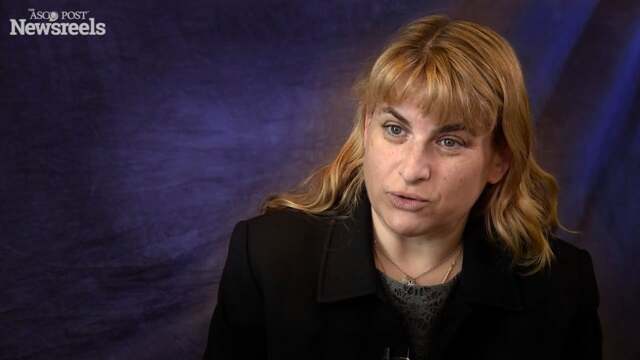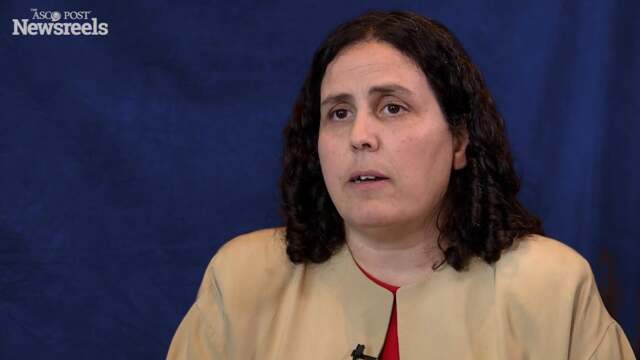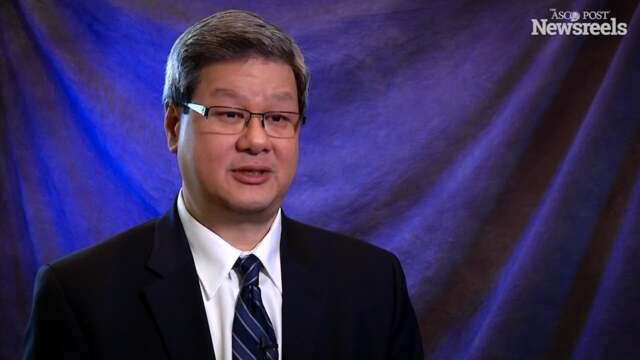Kevin C. Oeffinger, MD, on Controversies in Breast Cancer Screening Strategies
2016 NCCN Annual Conference (1)
Kevin C. Oeffinger, MD, of Memorial Sloan Kettering Cancer Center, discusses American Cancer Society recommendations, including the advice that women with an average risk of breast cancer should undergo regular screening mammography starting at age 45, and that women 55 and older should have biennial screening.
Rogerio Lilenbaum, MD, of Yale Cancer Center/Smilow Cancer Hospital, discusses the importance of tumor profiling for non–small cell lung cancer and strategies for treating EGFR-positive disease in the first-line setting.
Sarah L. Blair, MD, of UC San Diego Moores Cancer Center, discusses surgical resection of breast cancer, which has the best chance of cure and is better than hormonal treatment alone, even in patients over age 80.
Anne Covey, MD, of Memorial Sloan Kettering Cancer Center, discusses the role of ablation and arterial-directed therapy in the treatment of hepatocellular carcinoma.
Judith Paice, PhD, RN, of the Robert H. Lurie Comprehensive Cancer Center of Northwestern University, discusses strategies for safe opioid prescribing: making a comprehensive assessment, stratifying risk, using universal precautions, and educating practitioners on safe storage and disposal.
Wui-Jin Koh, MD, of the Fred Hutchinson Cancer Research Center, discusses the multiple services required to best treat this rare cancer.





